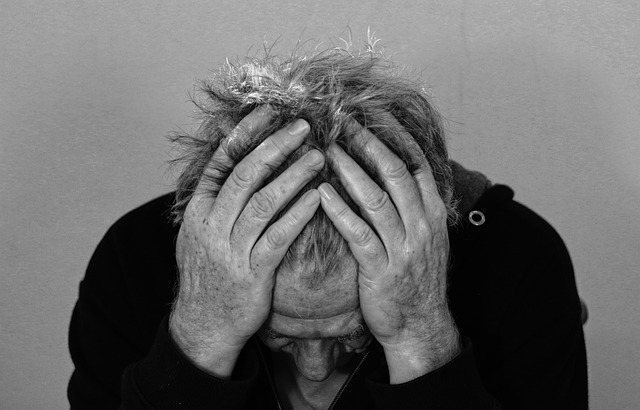Table of Contents
Intro
Do you find yourself wearing multiple layers of clothing, but still feeling cold? Are you constantly asking people to turn down the air conditioning or turn up the heat? If so, you may be wondering why am I always cold. Many factors can have an influence on your body temperature, and in this article we will discuss some of these potential causes and how to address them. From underlying medical problems to lifestyle choices, there are a variety of explanations for why you might feel colder than everyone else.

Why Am I Always Cold?
There are several reasons why you might feel constantly cold, even when your surroundings are warm. One common culprit is anemia, which occurs when your body doesn't have enough red blood cells to efficiently transport oxygen throughout the body. This can make you feel cold because it reduces circulation and slows down metabolic processes.
Another potential cause of feeling cold is hypothyroidism, a condition in which the thyroid gland doesn't produce enough hormones to regulate metabolism. This can lead to a slower metabolism and reduced body heat production, causing you to feel chilly even in warm temperatures. Additionally, poor circulation due to underlying health conditions like Raynaud's disease or peripheral artery disease can also make you feel cold more often than normal.
If you're frequently feeling colder than those around you or experiencing other symptoms like fatigue or weight gain, it's important to speak with a doctor who can help diagnose and treat any underlying conditions that may be contributing to your discomfort.

Temperature Regulation
If you're constantly feeling cold, it could be a sign that your body isn't regulating its temperature properly. There are several reasons why this may happen. One of the most common is poor circulation. When blood isn't flowing efficiently through your body, it can make it difficult for your body to maintain a consistent temperature. Other potential causes include anemia, hypothyroidism, and Raynaud's disease.
Another possible explanation for why am I always cold all the time is simply that you aren't dressing appropriately for the weather. Even if it feels comfortable indoors, stepping outside into cooler temperatures can trigger feelings of coldness if you're not dressed warmly enough for the occasion. In general, experts recommend wearing multiple layers when going outside in colder weather to help trap heat close to your body and keep you feeling warm and cozy even when conditions are less than ideal.
If you've ruled out these potential explanations and are still experiencing persistent feelings of coldness without any clear cause, it's worth talking to your doctor about whether there might be an underlying condition at play. With some medical attention and lifestyle adjustments, however, there's a good chance that you can start enjoying warmer days ahead once more!

Thyroid Problem (Hypothyroidism)
One potential reason why am I always cold could be due to a thyroid condition. The thyroid gland plays a crucial role in regulating body temperature, metabolism, and energy levels. When the gland is not functioning properly, it can disrupt normal bodily processes leading to symptoms such as feeling cold all the time.
An underactive thyroid or hypothyroidism is one of the most common causes of feeling constantly cold. This condition occurs when the thyroid gland does not produce enough thyroid hormones that regulate metabolism and body temperature. As a result, your body's basal metabolic rate decreases causing your internal body temperature to drop – making you feel chilly even in warm environments.
If you are experiencing persistent feelings of coldness, along with other symptoms such as fatigue, weight gain, hair loss, or dry skin – it’s worth considering getting your thyroid function tested by a medical professional to rule out any underlying conditions that may need treatment.

Low Blood Pressure
Low blood pressure, also known as hypotension, can be a cause of why am I always cold more often than those with normal blood pressure levels. This is because when the body's blood pressure drops, less blood flows to the extremities such as hands and feet. As a result, the body conserves heat by decreasing blood flow to these areas which can make them feel colder than usual.
Other symptoms of low blood pressure may include dizziness, fainting, fatigue and weakness. It is important for people experiencing these symptoms regularly to seek medical attention in order to identify any underlying conditions that may be contributing to their low blood pressure.
In addition to seeking medical advice, there are some lifestyle changes that can help alleviate some of the symptoms associated with low blood pressure such as staying hydrated and increasing salt intake (with approval from your doctor). Wearing warm clothing and layers can also help keep you warm while minimizing exposure to cold temperatures can reduce discomfort caused by feeling cold frequently.

Poor Circulation
Poor circulation is a common condition that affects many people, leading to a range of symptoms and health complications. One of the most noticeable effects of poor circulation is a feeling why am I always cold, even in warm environments. This happens because when blood flow slows down, less blood reaches the extremities like hands and feet where heat loss occurs. Consequently, these areas are more susceptible to feeling cold than other parts of the body.
Many factors can contribute to poor circulation, including age, obesity, smoking habits and sedentary lifestyle. Prolonged sitting or standing can also lead to poor circulation as they restrict blood flow and cause fluid buildup in legs or ankles. As a result of poor circulation, one may experience numbness or tingling sensations in fingers and toes due to lack of oxygen supply.
While mild cases of poor circulation usually improve with lifestyle changes such as regular exercise or massaging the affected area, it is important for one to consult a healthcare professional if symptoms persist or worsen over time.

vitamin b12 deficiency (Anemia)
One possible reason why am I always cold could be due to a vitamin B12 deficiency. Vitamin B12 is essential for the body's production of red blood cells, which carry oxygen throughout the body. Without enough B12, your body may not be able to produce enough red blood cells, leading to a condition called anemia. One of the symptoms of anemia is feeling constantly cold as your body struggles to maintain its normal temperature.
Another symptom of vitamin B12 deficiency is fatigue, which can also contribute to feeling cold all the time. When your body lacks sufficient levels of this important nutrient, it can lead to feelings of exhaustion and weakness. This can make it harder for your body to generate heat and maintain its normal temperature.
If you suspect that you may have a vitamin B12 deficiency or are experiencing other symptoms such as weakness or fatigue, it's important to speak with your healthcare provider. They can perform tests and provide guidance on how best to address any deficiencies and improve overall health and well-being.

diabetes
One possible explanation for why am I always cold could be related to diabetes. This is because high blood sugar levels can damage the nerves that regulate temperature and blood flow, leading to a reduced ability to sense or respond to changes in external temperatures. Additionally, people with diabetes may have impaired circulation which can result in less efficient heat distribution throughout the body.
It's important to note that feeling cold is just one of many potential symptoms of diabetes. Other common warning signs include frequent urination, increased thirst, unexplained weight loss, blurry vision and fatigue. If you are experiencing any combination of these symptoms, it's crucial to speak with a healthcare professional as soon as possible.
While there is no cure for diabetes at present time, managing the condition through regular exercise, healthy eating habits and medication (if prescribed) can help mitigate its effects and improve quality of life overall.

low body weight can cause cold intolerance
Low body weight is a common cause of why am I always cold, especially in individuals with an extremely low body mass index (BMI). When the body doesn't have enough fat to insulate itself and maintain its core temperature, it responds by producing less heat. This can leave people feeling cold even when others around them are comfortable.
Another reason why low body weight may lead to feeling constantly cold is that the internal organs may not be functioning optimally. One example of this is the thyroid gland, which regulates metabolism and temperature regulation. In individuals with low body weight, the thyroid gland may produce insufficient levels of hormones needed for proper metabolic activity, leading to decreased heat production.
To combat these effects of low body weight on core temperature regulation, it's essential to speak with a healthcare professional who can assist you in achieving a healthy BMI through diet and exercise or other appropriate treatments tailored for your individual needs.

overweight with high body fat
People who are overweight with high body fat may find themselves feeling cold more often than others. This is because excess body fat can affect the regulation of body temperature. The added insulation from the fat can cause the body to feel warmer, but it also makes it harder for heat to escape. As a result, someone who is overweight may feel overheated and sweaty in warm weather, but struggle to stay warm in cooler temperatures.
In addition, high levels of body fat can also impact blood circulation. When blood vessels become constricted due to excess weight or poor diet choices, less blood flows through them. This means that less heat is distributed throughout the body which can lead to feelings of coldness even if the room temperature is normal.
If you are consistently feeling cold despite being in a comfortable environment, it's important to consider whether your weight and/or body fat percentage could be contributing factors. Taking steps towards a healthier lifestyle including regular exercise and a balanced diet can help improve circulation and regulate your internal thermostat for optimal comfort and health.
Stress & Anxiety
Stress and anxiety can have a significant impact on our bodies, including the experience of feeling constantly cold. When we are stressed or anxious, our body’s “fight or flight” response is triggered, causing our blood vessels to constrict and reducing blood flow to our extremities. This reduced blood flow can make us feel colder than usual and even cause physical symptoms like chills and shivering.
In addition to physical changes in the body, stress and anxiety can also affect us mentally by making it difficult to focus, sleep or relax. These feelings of overwhelm and constant worry can lead to a vicious cycle where we struggle with stress-related symptoms that only exacerbate our original concerns.
It’s important to take steps to manage stress and anxiety, whether through therapy, meditation, exercise or other self-care practices. By addressing these underlying issues, we may find that not only do we feel less anxious but also physically warmer as well!
Lack of sleep Can Cause Coldness
One of the lesser-known effects of lack of sleep is feeling cold all the time. Sleep deprivation can cause a drop in core body temperature, which can make you feel chilly even in warm environments. This happens because when you don’t get enough rest, your body doesn’t have a chance to repair and regenerate itself properly, which affects its ability to regulate temperature.
Additionally, lack of sleep can lead to an increase in stress hormones like cortisol, which can also contribute to feeling cold. Cortisol triggers the release of glucose into the bloodstream, causing a temporary boost in energy but also interfering with normal metabolic functions such as regulating body temperature.
To combat this problem and reduce your chances of feeling cold due to sleep deprivation, it’s important to prioritize getting enough restful sleep each night. Aim for at least seven hours per night and create a relaxing bedtime routine that allows you to unwind before bed. Avoid caffeine and alcohol before bedtime as they can disrupt your natural sleep cycle and try keeping your bedroom cool but not too cold so that it encourages deep and restorative slumber.
How Not to Feel Cold all the time Tips For keeping warm
Winter can be a challenging season for many people, especially for those who suffer from cold intolerance. If you are someone who frequently feels cold, particularly in your hands and feet, it is essential to understand the underlying cause of these sensations. Many factors may contribute to feeling cold all the time, including poor circulation, anemia, hypothyroidism, and low blood pressure.
Fortunately, various tips can help you keep warm during these chilly months. First and foremost, it is crucial to keep your body adequately nourished and hydrated. Eating foods that are rich in vitamins and minerals, particularly iron and vitamin B12, can help your body produce the red blood cells necessary for delivering oxygen throughout your body. Staying hydrated by drinking plenty of water and warm beverages can also help maintain body temperature.
Another way to improve circulation is by switching to a healthier lifestyle. Regular exercise can significantly improve blood flow to your body's arteries and reduce symptoms such as cold hands and feet. Even small changes in routine such as taking the stairs instead of the elevator can help improve circulation. Also, make sure to keep your extremities, like your fingers and toes, warm by wearing appropriate clothing, such as gloves, socks, and boots.
It is also essential to dress in layers to trap your body heat and prevent the chilly air from penetrating your skin. While staying warm during winter is crucial, it's also important to remember not to overheat yourself. Overheating can trigger sweat production and subsequent body cooling, leading to a feeling of coldness. Regularly checking your indoor temperature and adjusting layers accordingly can help you stay warm while preventing overheating.
In conclusion, if you frequently ask yourself ‘why am I always cold,' it's time to evaluate your lifestyle and adjust your habits accordingly. Eating a balanced diet, exercising regularly, and dressing appropriately are some of the effective ways to keep your body warm efficiently. By understanding the underlying causes of cold intolerance and implementing the tips mentioned above, you can prevent feeling cold all the time and enjoy the winter season with comfort and warmth
Conclusion: Move Your Body
In conclusion, moving your body is not only beneficial for maintaining a healthy weight and strengthening muscles but also for regulating body temperature. When you exercise, your heart pumps more blood to the surface of your skin and increases circulation throughout the body. This increased blood flow helps to distribute heat more evenly, resulting in an overall warmer feeling.
Additionally, exercise can help improve thyroid function, which plays a crucial role in regulating metabolism and body temperature. A sluggish thyroid can lead to feeling cold all the time as well as other symptoms such as fatigue and weight gain.
So if you find yourself constantly bundled up or struggling with feeling cold even when others are comfortable, incorporating regular physical activity into your routine may help regulate your body temperature and improve overall health. From yoga to running outside on a chilly day, there are plenty of options to get moving and reap the benefits.
Related Articles
Web MD Why am I always cold?
https://www.webmd.com/a-to-z-guides/why-am-i-cold
Medical News Why am I always cold?
https://www.medicalnewstoday.com/articles/325151
Livi Why am I always cold?
https://www.livi.co.uk/your-health/why-am-i-always-cold/
Health Why am I always cold?
https://www.health.com/mind-body/why-am-i-always-cold
Womens Health Why am I always cold?
https://www.womenshealthmag.com/health/a39860378/why-am-i-always-cold/
Good Housekeeping Why am I always cold?
https://www.goodhousekeeping.com/health/wellness/a34151975/why-am-i-always-cold/
Real Simple Why am I always cold?
https://www.realsimple.com/health/preventative-health/why-am-i-always-cold
Eating Well Why am I always cold?
https://www.eatingwell.com/article/8025811/always-cold-reasons/
Lifestyle Health Why am I always cold?
https://www.dailyrecord.co.uk/lifestyle/health-fitness/am-always-cold-seven-health-28043781
Banner Health Why am I always cold?
https://www.bannerhealth.com/healthcareblog/teach-me/why-am-i-always-so-cold-7-possible-reasons
Nerd Momma Why is my period late?
https://nerdmomma.com/why-is-my-period-late-11-big-facts-for-a-late-period/#more-1897
Nerd Momma Why is my eye twitching?
https://nerdmomma.com/why-is-my-eye-twitching-stop-9-eyelid-twitch-facts/

This is a great and informative post.
Thank you LaToya